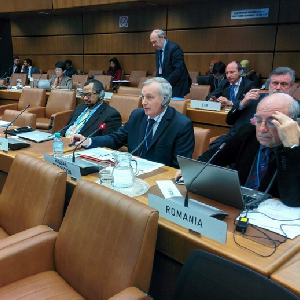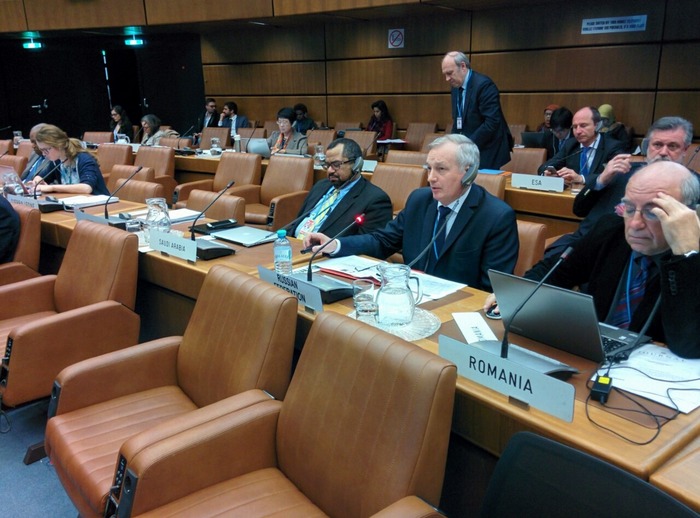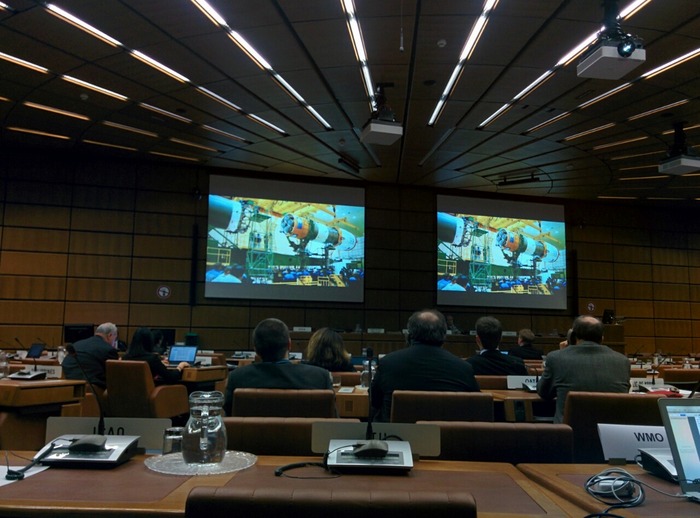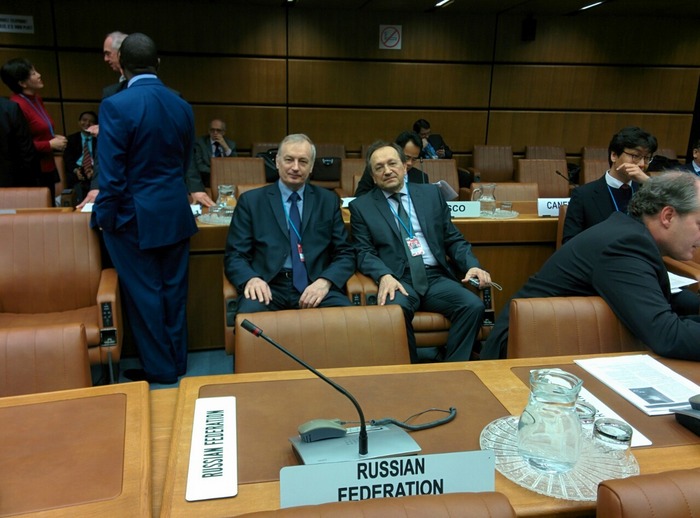
English > News
For the first time Russian university presented its achievements in outer space to the UN
01.03.2016, 17:51
Samara State Aerospace University proposes to develop scientific and educational projects in the field of advanced space technologies together with developing countries.
The University Rector announced it on Wednesday in Vienna, delivering a presentation on the institution achievements in the course of the 53rd session of the Scientific and Technical Subcommittee of the United Nations Office for Outer Space Affairs.
According to the Rector, one of the main tasks of the University is the development of the youth potential in the field of space technology, focused on the improvement of human life quality and conduction of researches aimed at increasing knowledge about the outside world. “We cooperate with many leading centres in the field of joint researches, attraction of young people for training, teachers and students exchange, in the area of creation of joint laboratories and research and educational programs. More than 52 countries work with us on the specialists training, and I hope this list will be expanded”, - said Shakhmatov.
SSAU specialists are ready to conduct specialized training courses on exploration technology for near-Earth space in the regional training centres for space science and technology, created under the auspices of the UN in Asia, Africa and South America. SSAU also invites young people from developing countries to participate in international space schools, which take place every summer in Samara. The University also took the initiative to hold in 2017 the United Nations Symposium in Samara, confined to the 60th anniversary of the space age beginning (launch of the first Earth satellite vehicle).
Rector Shakhmatov noted that not only educational programs are realized and theoretical researches are conducted, but also the mini-, micro- and nanosatellites are being designed within the walls of the University.
“In the coming months the first launch of the rocket “Soyuz 2.1a” will be performed from the space launcher complex “Vostochniy”. There will also be our unit “Aist-2D” as a payload, created by our young scientists together with the Rocket and Space Centre “Progress” and instrumented with the equipment for the Earth remote sensing in the optical, hyperspectral and radar bands. In addition, together with this we will launch a nanosatellite, which was made only by our young scientists”, - told Evgeniy Shakhmatov.
The two following SSAU project - nanosatellite SamSat-QB50, already preparing to participate in large-scale international project QB50 under the auspices of Von Karman Institute for Fluid Dynamics (Belgium), and the creation of a nanosatellite, equipped with a camera and able to solve the problem of Earth observation.












